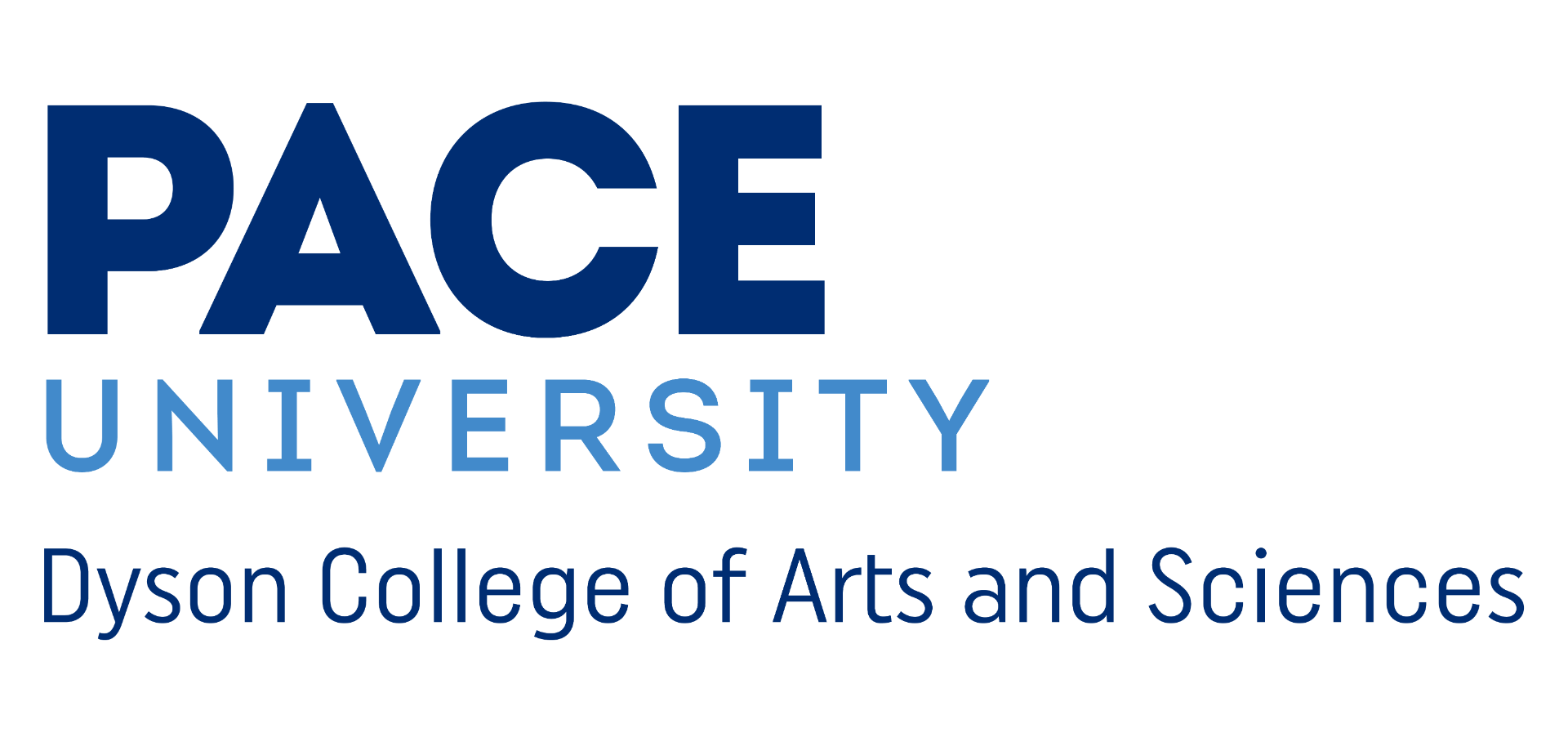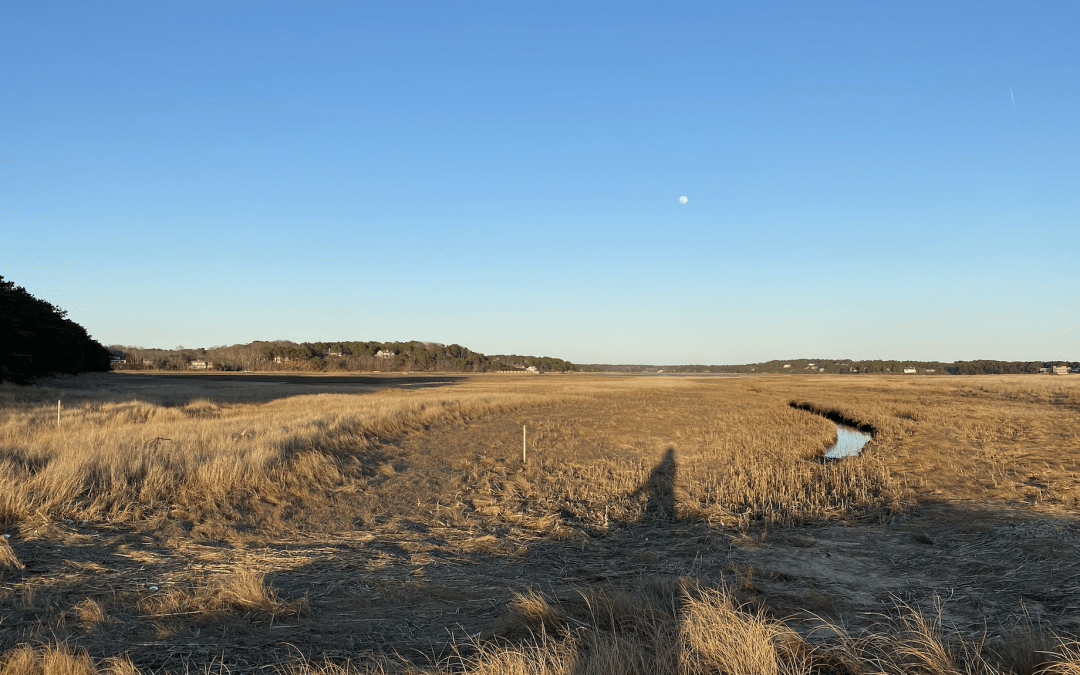March 16, 2022
This blog post was written by Jerry McKinstry and Caroline O’Kane.
The wake-up call came early.
By 5 a.m. the first Pace Docs crew was loading up a caravan of weary-eyed filmmakers and their gear to capture the sunrise in Barnstable. The morning rush of gulls, loons, grackles, and mourning doves swept in before any signs of human activity.
It was quiet, tranquil, calming and…cold – the price of admission of getting an inside look at the fascinating culture of oyster farming on the Cape. It was our first shoot of what would be a full day embedded across the Cape.
Falmouth
At Waquoit Bay in Falmouth, we were welcomed by Falmouth’s Constable Chuck Martinsen who led a crew of volunteers and students from the Upper Cape Cod Regional Technical High School, bagging oysters to be placed in the water.
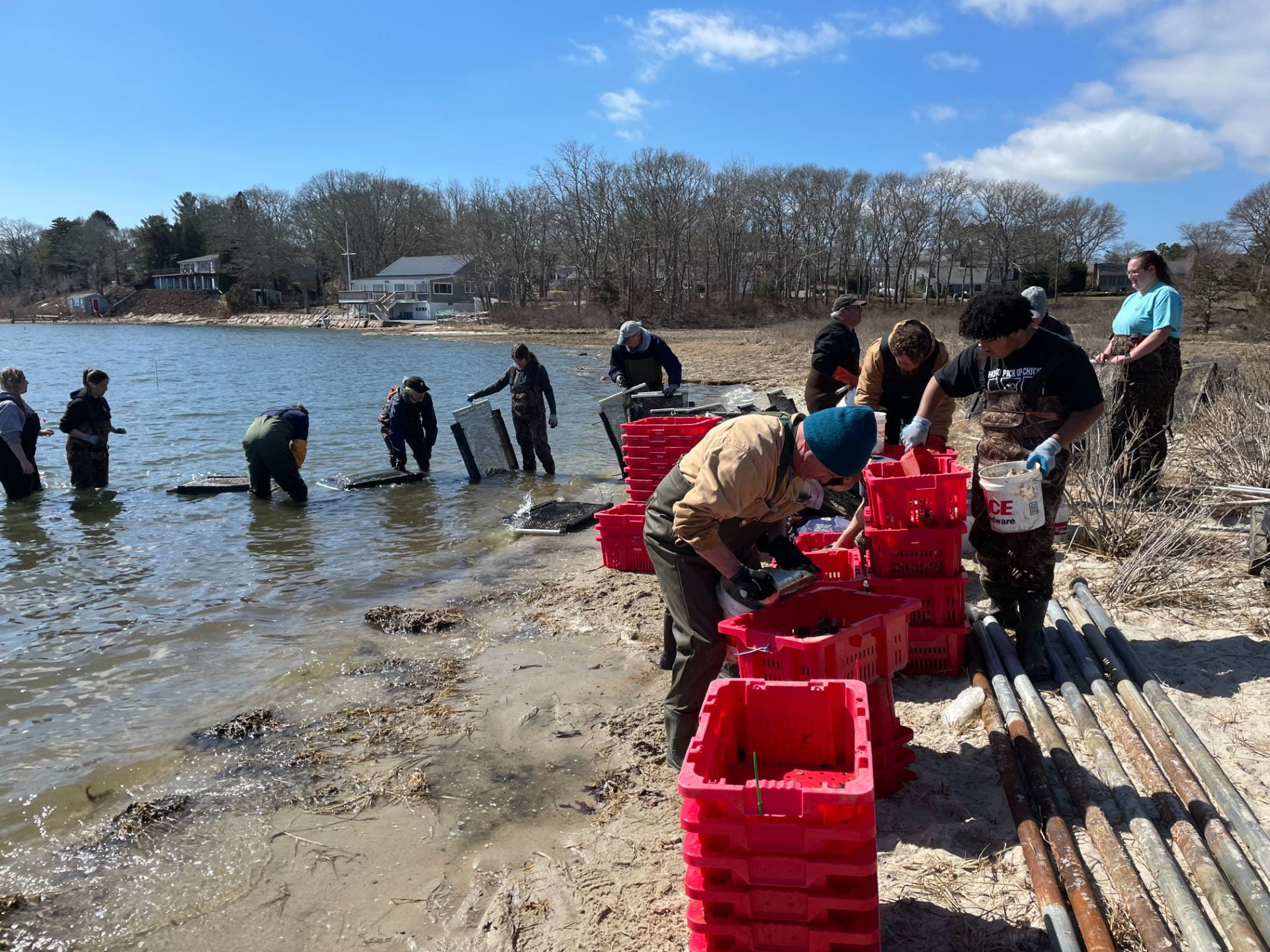
Students from Upper Cape Cod Regional Technical High School
Chuck told us they were putting 75,000 oysters, fresh off a winter in hibernation, in the water Wednesday. When you apply the conventional math – that one oyster can filter up to 50 gallons of water per day – you can imagine the collective strength of the bivalve and the cultural and culinary perk to residents.
Chuck and other constables like him play a vital role in managing a critical environmental, cultural, and economic balance in their respective areas. They are a unique mix of scientist, marine biologist, cop, educator, and shellfish ambassador.
The energy, passion, and understanding of the role that oysters play in the ecosystem, culture, and economy was palpable among the volunteers. When we approached a few students filling the oyster bags on the Bay, they summed their reason for being there quite succinctly:
“Oysters are really important for filtering the water. The nitration of water is a big problem right now because nitrogen makes plants grow. The plants grow and suck up all of the oxygen in the water and we end up with dead zones,” said Morgan, a high school senior.
“A lot of people rely on the waters in Cape Cod for incomes for their families. They rely on it for its pleasantries. Our job is to protect it and preserve it, and that’s what we are trying to do right now.”
Wellfleet
Another crew drove out to Wellfleet– home of the most famously recognized variety of New England oysters. More remarkable than the name the oysters have made for themselves, though, are the proud individuals who work to uphold their globally respected status.
At the Wellfleet Historical Society, we spoke to David Wright, author of The Famous Beds of Wellfleet. David explained everything from how the settlement of New England impacted sea trade to how the local laws on licensing and leasing have been established to protect the land. When asked about the best oysters in the world, David explained, “It would be a betrayal of Wellfleet to name an oyster from anywhere else.”
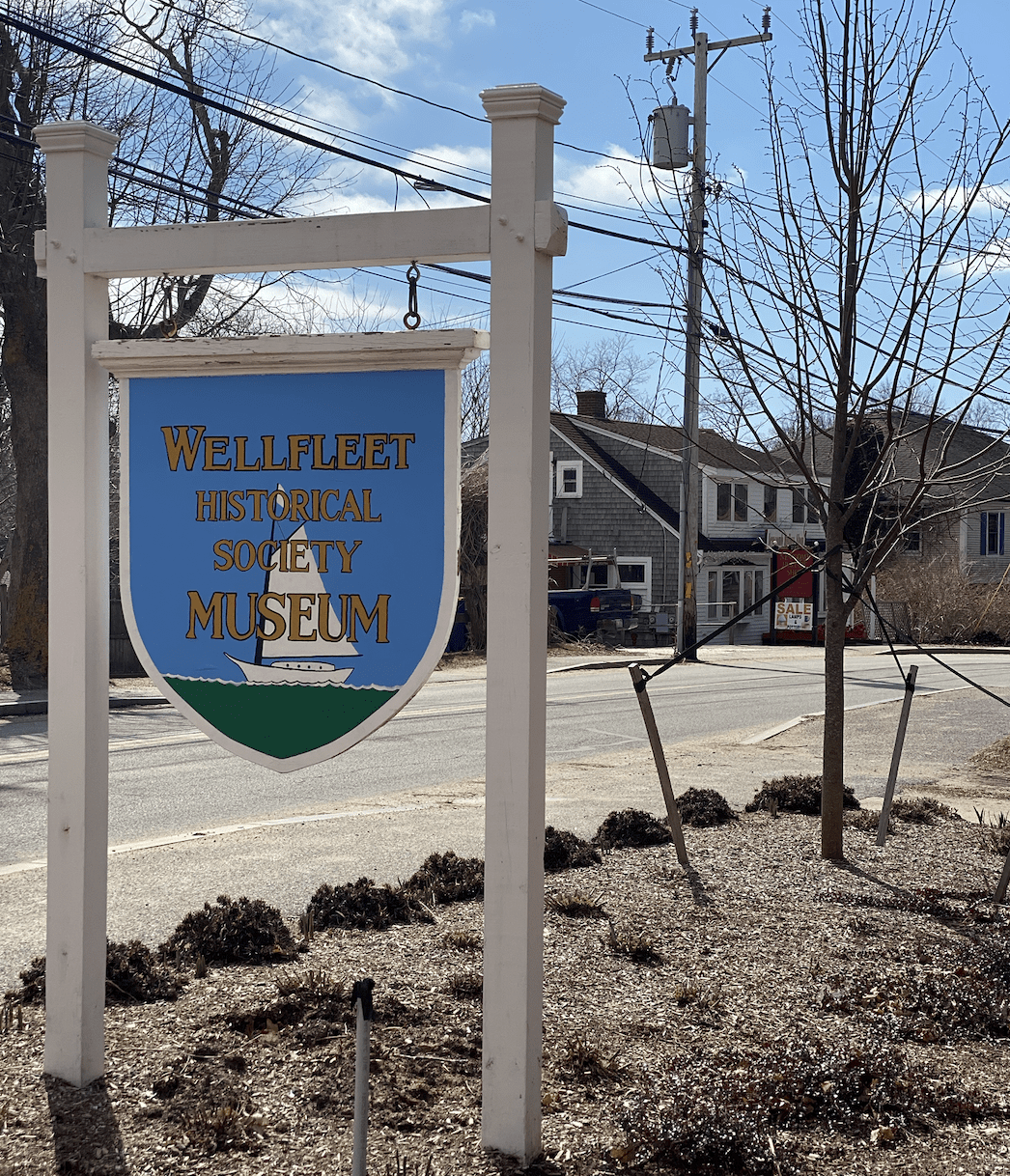
Wellfleet Historical Society Museum (Wellfleet, MA)
Around Indian Neck Beach, we met up with Jim O’Connell, a carpenter-turned-oyster farmer. Jim greets visitors with an overwhelming sense of hospitality– he is the first person to ask a stranger how their family is doing. One of the assumptions going into this project was that oyster farmers are born into this business and pursue the unique opportunity to learn the trade directly from someone they know. Jim is living proof that that assumption could not be further from the truth. He did not come from a long line of oyster farmers. He moved to Wellfleet with a background in engineering, a strong work ethic, and a kind heart. He believes that if there’s something you enjoy doing, you should just do it.
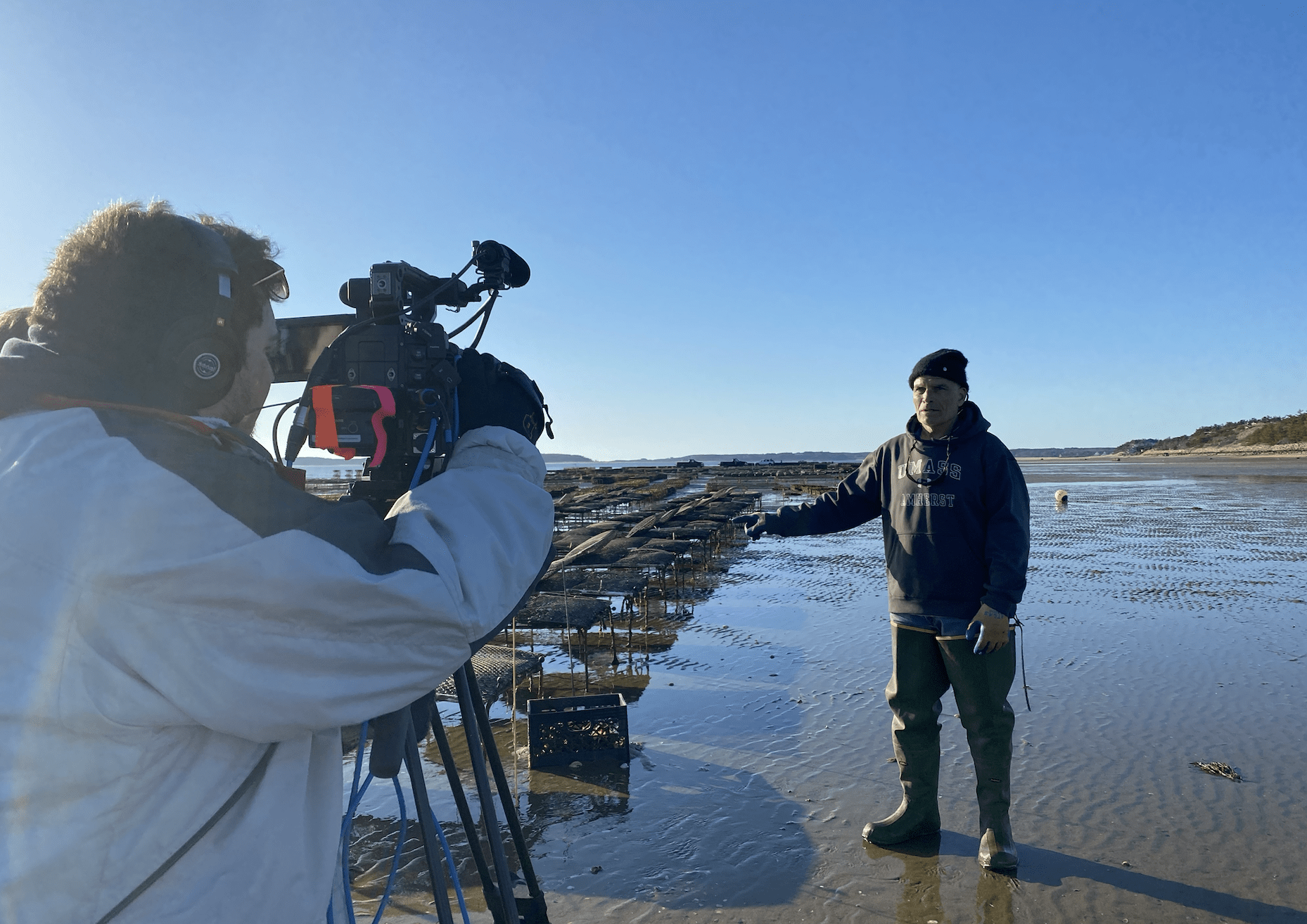
From left to right: Aron Mondschein (cameraman) and Jim O’Connell (Wellfleet oyster farmer)
A few yards away, Jim’s nephew worked on sweeping buildup away from the nets of their clambeds. Not all family members remained in Wellfleet with the same passion for the business, but Jim’s story shows an outsider that made it his business to succeed in a grueling industry, and now offers a family legacy for those like his nephew, James. It’s worth mentioning that taking on the family business is not an alternative to pursuing higher education- James still earned a graduate degree, and still returned to Wellfleet.
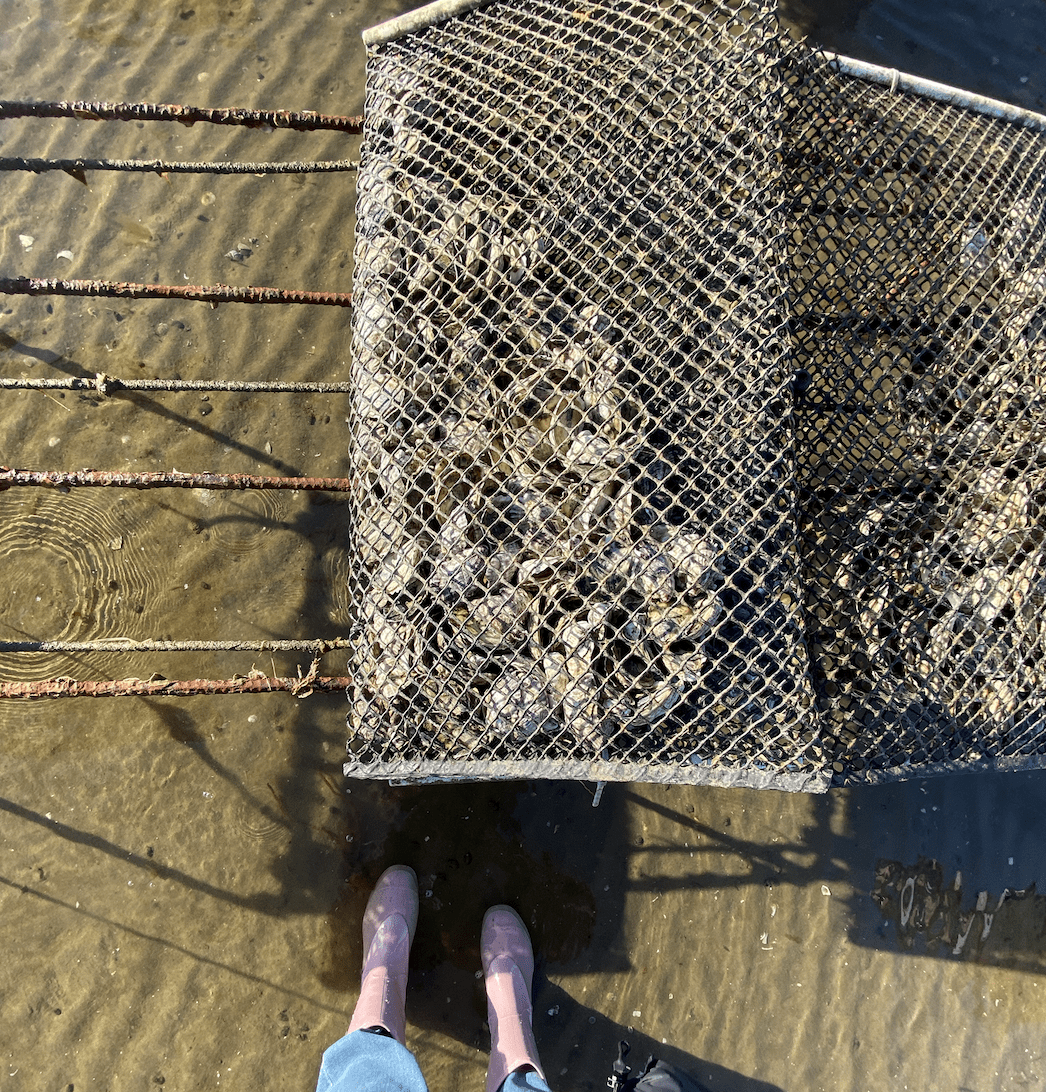
Oysters from Jim O’Connell’s farm in Indian Neck (Wellfleet, MA)
The importance of education is present in the mission of the Wellfleet Shellfish Promotion and Tasting (SPAT), to protect and promote the shellfishing industries. One of their ways of achieving this is generating funding through the town’s annual oyster festival. They direct the proceeds to the local college scholarship program and other community grants. Critical thinking and knowledge expansion are critical to managing the unforeseen forces of Mother Nature. As Jim says, “She’s the mother for a reason. She’s the most powerful.”
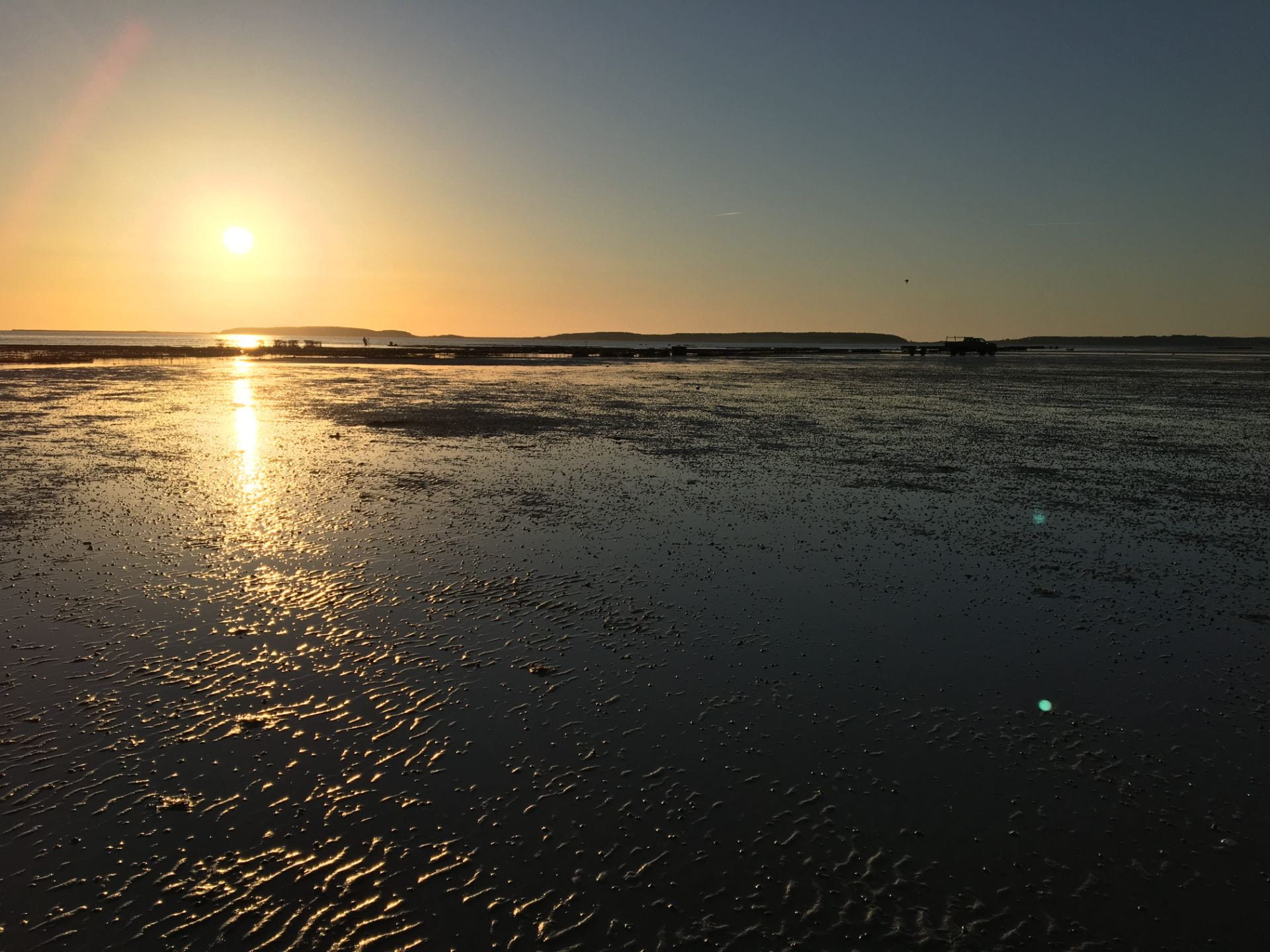
Later in the evening, all the crews came together for a fun dinner and a debriefing on the day. We talked about footage, narrative, the story paradigm, and the three-act structure that dates back to Plato, the Greek philosopher.
After a few more laughs and conversation about the next day’s assignment, it was a wrap. It was a 11 p.m. and it was clear, we were beat. Professor Luskay gave us another pearl of wisdom: “Get some rest. We have a long day tomorrow.”
BONUS: Click here for Jim’s favorite preparation of an oyster on the half shell!
